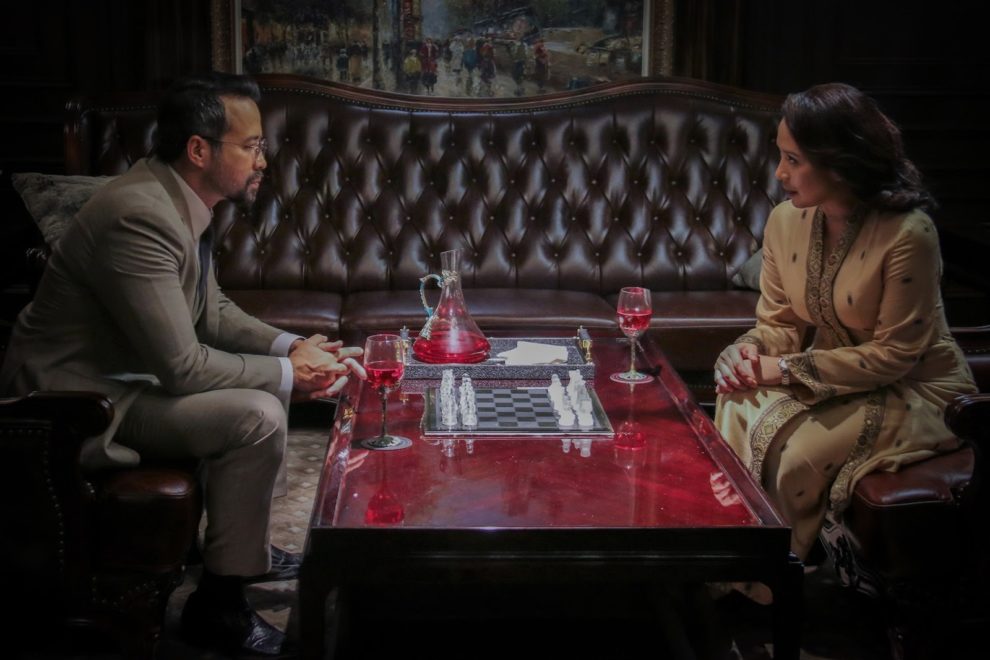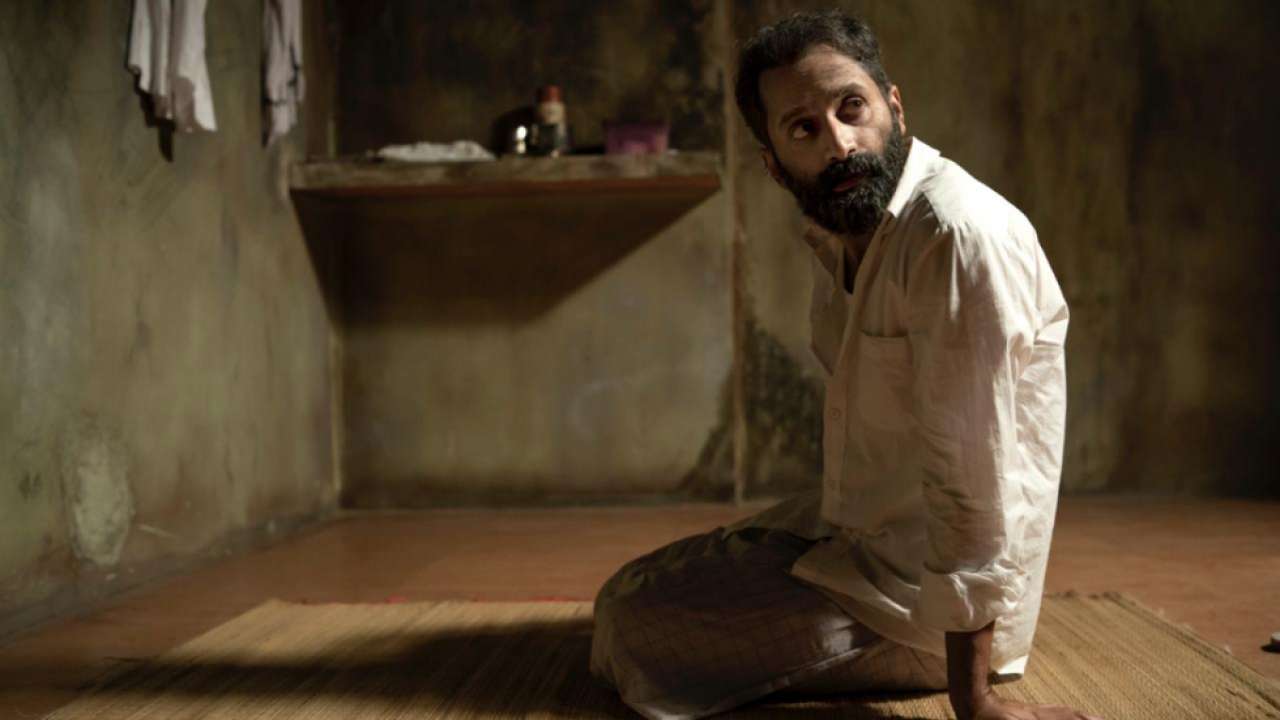Malaysian politics and particularly the corruption surrounding them was not exactly a topic that could be touched upon the previous years, when censorship was quite intense (Dain Said's “Dukun” was one of the most prominent “victims”). Since 2018 however and “Crossroads: One Two Jagga”, the possibility of taking a look at the issues of corruption in the country through cinema has become a reality, and “Daulat” definitely takes advantage of that, as the intro so eloquently “denies”.
“Daulat” is streaming on MUBI Malaysia
The labyrinthal story of Imran Sheik penned, is as follows. After losing the general election from Wawasan and its president, Dato Sri, the president of MUNA, Hasan, who is under investigation for corruption, employs Suri, a ruthless politician known as one willing to do anything to achieve her goals, in order to win the next elections. Despite the initial objections of both Hasan and the rest of the board members, Suri convinces them to get in bed with Saiful and HM, a far right Muslim party, in order to strengthen their position in the rural areas. At the same time, her husband, Idrus, who is the CEO of Media Raya and a partner of Nadiya, Hasan's daughter, is struggling to face their competition, MCC, which is favored by the current ruling party. Their solution is to launch a news streaming service, but to do so, Nadiya needs to find a large amount to invest. To help her, Idrus introduces her to a an investor friend of his, Ramzi.
In the meanwhile, Jasmim, a lowly employ of Media Raya, is desperate to find money for her father's treatment, as he is dying from cancer. To do so, she decides to flirt with Idrus, and use sex to become the managing director in the company. Eventually she succeeds, but soon finds herself having to spread propaganda and fake news on his and Suri's behest. Suri decides to become even more radical, suggesting Melisa, an Indian woman, as the new spokesperson for MUNA, a decision that brings Hasan's anger directly upon her. Furthermore, Suri has to face an invisible enemy who blackmails her through her husband, while Jasmin finds herself entangled in ways she did not anticipate at all.
The story Imran Sheik presents here is complicated, but so is his main theme, of the corruption that rules the higher echelons of Malaysian society and the ties between politicians, media companies, and the “capital”, which in this case, begin on the family level. The main medium of this seems to be the spreading of fake news, but soon it is revealed that the corruption goes a long way, and violence is anything but out of the question.
Furthermore, what becomes evident from the beginning almost, is that the “biggest fish” are always in war among them for more power, and that the people who are caught in the middle of the fight, are just fodder, as both Jasmin and eventually Nadiya's arc eventually prove. In that regard, the story eloquently highlights, additionally, that even political actions that seem to promote democratic values are actually just movements in the chessboard of the game for more power.
That the whole thing is a chess game for big players is eloquently presented in the introduction scene, which functions as a prophecy of what is going to happen as the story unfolds, although the identity of the main opponents and the pawns is not evident from the beginning. This gradual revealing of what exactly is happening is one of the best parts of the narrative, as it also gives a noir/political thriller essence to the movie, which is also heightened by Nurhanisham Muhammad's atmospheric cinematography. The same applies to the editing, that gives a relatively fast pace to the narrative, retaining, though, the sense of mystery of what is and what will happen eventually. The second finale that appears after the ending titles, however, is quite unnecessary and somewhat on-the-nose, since the points Sheik wanted to make were quite clear from the actual finale.
The acting occasionally resembles TV standards, as do various aspects of the production actually, but the overall charisma of a number of actors allows the movie to rise much above this issue. Particularly Vanida Imran as Suri and Tony Eusoff as Hasan give great performances, carrying the movie through their interactions, while Rashidi Ishak as Idrus follows close behind. Dain Said also makes a cameo as a political analyst.
“Daulat” has some issues, as occasionally functions as a TV-movie, but the script, the direction, the majority of the cast and the sociopolitical comments definitely compensate, resulting in a rather intriguing spectacle.
















